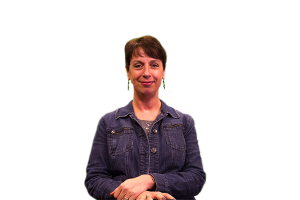A note from outgoing MATC academic director
By Rhonda Gibson
I believe it’s time for a change! After almost five years as the academic director of the MATC program, I’m leaving my administrative role and joining the program’s esteemed faculty.
When I signed on in 2009 to help develop the Journalism School’s first fully online master’s program, it was an exciting challenge. We were creating a new curriculum to be delivered in a new format to a new type of student – working professionals. We knew there was a need for a part-time master’s program to help professional communicators learn how to strategically employ digital media in their jobs, and we worked so hard to create a rigorous online program that balances skills and strategy, theory and practice. Our first students enrolled in 2011 and graduated last year. We’ve completed a curriculum review and revision and have learned so much in the process. The MATC program is no longer an infant. It’s grown up!
And so now I can go back into doing what I love the most: teaching. The talented and gracious Laura Ruel, a multimedia whiz and former MATC faculty member, newspaper reporter and designer, has taken over as academic director. Beginning in the spring 2015 semester, I will teach JOMC 715, New Media and Society. That’s a rather general title; I think of the class more as “The psychology and ethics of human-technology interactions.” Obviously I need to think of a better title, but in the meantime, I explain to people that I have two goals for this class:
1.To use research in cognitive and social psychology to help media professionals understand not just how — but also why — people use and interact with digital media and to harness that understanding so that we can do our communication and media jobs better.
2. To think about the implications of the decisions we make related to goal #1. Technology and digital media are changing so fast, and it’s a real challenge to keep up with the latest developments. What sometimes gets lost is a discussion about what we should do in addition to what we know how to do. So, in addition to learning how to use digital media to achieve our professional goals, we’ll address the individual and societal effects of our digital media best practices.
As I continue to prepare for the New Media and Society class, I thought I’d share two key points I’ve learned from my administrative experience.
First, working professionals ROCK as students. They cut through the baloney and get right to the point! They are busy people with full-time jobs and families and community commitments. They want to know that the program they’re spending their valuable time and money on will deliver on its promises. They’re not in this just for the academic credential; they want technology and leadership skills, and they want to apply those skills to their professional lives from the very first day of class. That is such a joy for those who administer the MATC, and our students’ straightforwardness has helped us fine-tune the curriculum and program policies to ensure that everything is useful and efficient. The current administrative team is preparing for orientation for the incoming 2014 cohort, and every minute of this two-day residency will be filled with helpful information to launch students on their way – thanks in large part to what we’ve learned from our first three classes of no-nonsense (and delightful) students.
Second: The MATC has many strengths, but my favorite — and one that sets us apart from other online master’s degrees in communication — is the “cohort” aspect of the program. Because our curriculum addresses all aspects of mass communication (journalism, advertising, public relations, marketing, visual communication), we have a prescribed set of classes and no electives. Thus, all 20 students in each incoming group proceed through their classes together. This means that each student is in class for two years with up to 19 other working media/communication professionals. Not only do our students learn from the expertise of our award-winning faculty, but they also benefit from the input of their classmates, who are talented professionals with years of experience and a range of skills. We’ve heard from many, many students that the cohort experience is SO valuable. It’s great for group projects, professional networking and personal support. And those connections don’t stop with graduation. They continue as students become alumni.
So, I’m eager to get to work with the 2014 incoming cohort in my new role as a faculty member. I will miss my job as academic director, especially the thrill of talking with prospective students to help them identify the best master’s program to meet their professional and personal needs. I have so enjoyed those conversations. Now I’ll get to work with some of those student I recruited – to help them convert what might seem like ivory-tower academic research into concrete strategies for the workplace that benefit the professional, the profession and the community.
Life is good!
